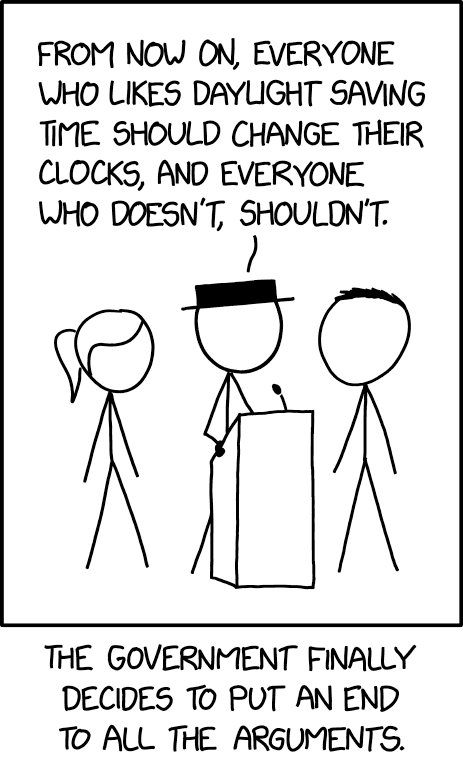this post was submitted on 25 Oct 2023
973 points (98.4% liked)
xkcd
9033 readers
320 users here now
A community for a webcomic of romance, sarcasm, math, and language.
founded 2 years ago
MODERATORS
you are viewing a single comment's thread
view the rest of the comments
view the rest of the comments

Where did you get the idea that the Julian calendar doesn't have months? The Gregorian calendar we use now made a tiny tweak to it to reduce drift, but is nearly the same.
I don't remember specifically where I got the idea, but when I was in the military, we used it for operations and never used the month. We would solely state the day of the year. If that has another name, then that's what I'm talking about. A yearly calendar where the date is the day of the year in sequential order without months.
The Julian calendar is the one that has no special rule for leap years. It is currently October the 12th in the Julian calendar.
The calendar that is used all around the world is the Gregorian calendar.
What you mean is called the ordinal date (at least by Wikipedia: https://en.wikipedia.org/wiki/Julian_calendar, see the disambiguation note at the top)
I think you’re talking about this, which the article says used to called Julian date
https://en.wikipedia.org/wiki/Ordinal_date
Yeah that part didn't make sense... If they proposed a 13 months, 28 days/month calendar or one without months then ok, but the Julian calendar is just the Gregorian calendar shifted 13 days...
Fine. What's the term for a calendar that labels every day of the year in sequential order without using any other divisions like months?
Day of the year calendar, but you could look into the seasonal calendar, the international fixed calendar and ISO week date.
I'd like to give some context here: the julian calendar is the older one that doesn't take into account that leap years are more complicated that just every fourth year. It was still a good idea to standardize the calendar. Before that, the months were shorter and the Senate decided were to put arbitrary days to make it fit
He means Julian day number. It's unrelated to the historic calendar